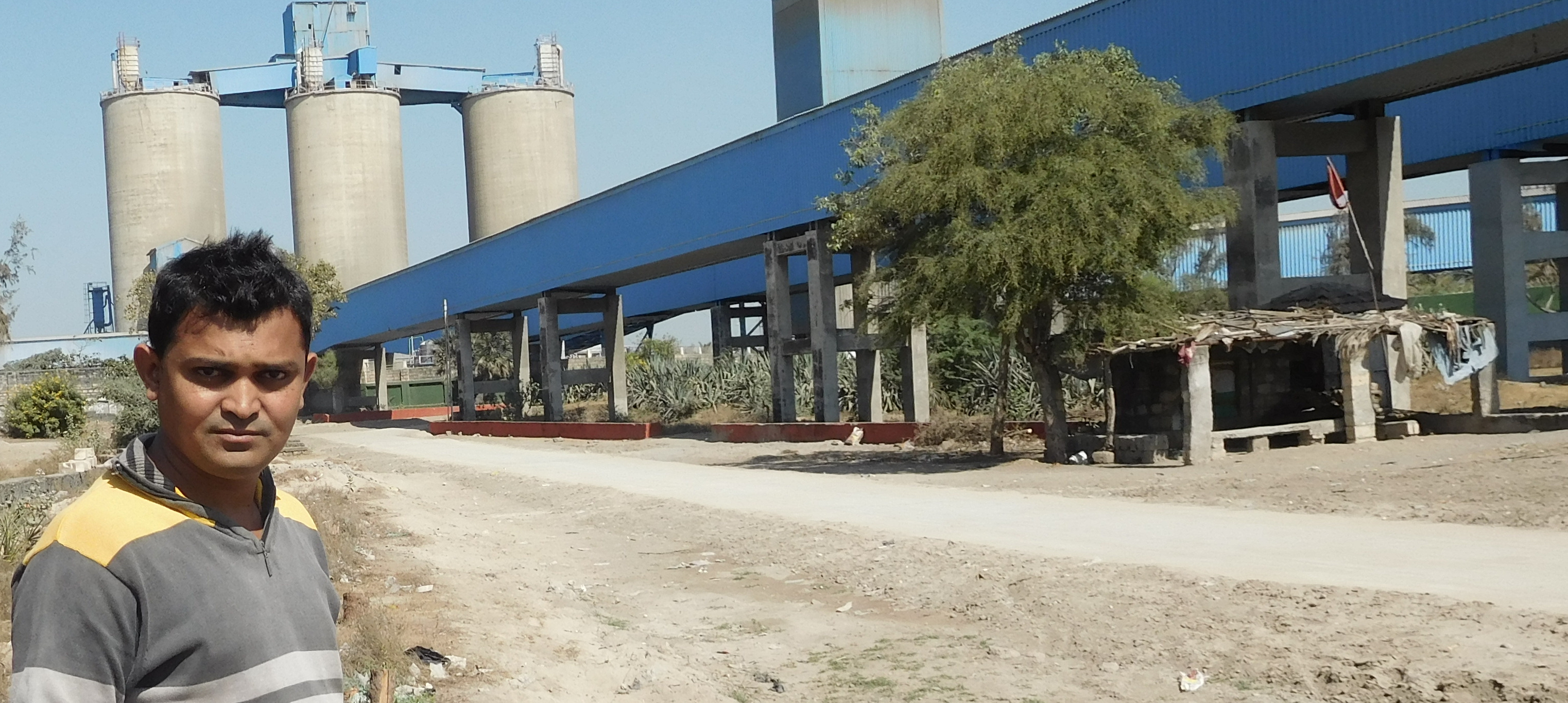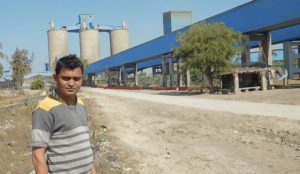News & Blogs | Stories
Gujarat villagers act to stop a company’s mishandling of coal and cement
For years, the improper handling of coal and cement at the jetty of a prominent company polluted the air near the Muldwakarka Port in Gujarat, India. Villagers worried that the dust posed health risks and farmers complained that it damaged their crops and fields.
The newly appointed Sarpanch (Village Head) of Muldwarka felt compelled to find a remedy for the dust. He contacted Vijay Rathod, one of CPR-Namati’s Enviro-legal Coordinators, and together they got to work.
With Vijay’s help, the village head discovered the Jetty was committing several violations of the coal handling guidelines issued by the Gujarat Pollution Control Board. The company’s stack of coal would often be higher than the boundary wall, and the coal would be lying uncovered, making it easy for the coal dust to disperse into the air. He took pictures of these violations and together with Vijay approached the Pollution Control Board. As the village head explains,
“We knew the Pollution Control Board was responsible but we did not know where to go, which officer to meet and how to complain. We didn’t have experience appealing to the board.”
After reviewing the evidence, the Pollution Control Board ordered the company to comply with existing environmental guidelines. The board’s order brought a number of visible improvements to the jetty. The company planted trees and increased the height of the boundary wall. They covered the stack of coal and began to periodically spray water to keep down the dust. The village head says they still get dust when fast winds blow, but day-to-day air quality is better than it has been in years.
Note: the name of the company and village head have been omitted upon request.


